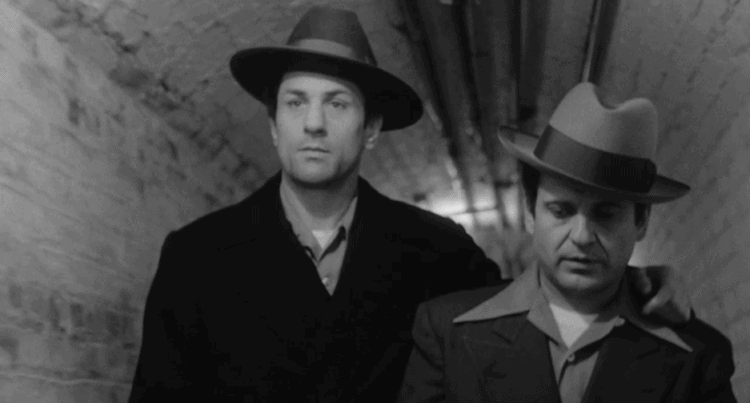
Sporting stories are a dime a dozen in cinema, especially in the USA. And depending on the sport and the milieu it portrays, sporting stories can be used as both personal and sociological studies, sometimes both within the same picture.
While some great sporting films get very technical about the sport they are telling, like Bill Durham or Hoop Dreams, other sporting movies seem to treat the sport at the centre of the story as of secondary concern to its characters.
Below we have collected a group of sport films that aren’t really about the sport they are portraying at all, instead using the genre in order to make wider comments about its characters or the society they live in. Ranging from chaotic boxers and golfers to men trying to redeem their lives to women pushing back against stereotypical gender norms, these films may be sporting movies, but they also reach more further than that to explore universal aspects of life far away from that sport itself.
Read on now to see which films we have picked. Disagree with our selections? Think that these are actual proper sport movies? Please let us know your thoughts in the comment section below.
Raging Bull
Raging Bull is one of the greatest films of all time, a study in masculinity and jealously that deserves to be compared alongside Shakespeare’s Othello. Starring Robert De Niro in one of his finest performances as Jake LeMotta, a man whose aggression on the ring comes out in his personal life, the final result is a fascinating, blistering look at the heart of male insecurity.
While the boxing scenes themselves are extremely well-handled, including the use of close-ups, lighting changes and amazing sound design – such as the subtle use of animal sounds and silence – the film is far more interested in exploring toxic masculinity than the particulars of boxing. This is a common theme in boxing movies, both the first Rocky and The Fighter more studies in male insecurity than just sport films. Martin Scorsese himself never had much interest in boxing, with Robert De Niro himself convincing him to take on the project; thankfully he did and we have a film that is so much more than just a simple boxing movie.
Bend It Like Beckham
When Bend It Like Beckham first came out in the UK, it felt like a big breath of fresh air. Not only was it a story about a girl playing football – then a niche interest – but an British-Indian girl playing football, a demographic often neglected in British cinema. Yet the film is more interested in exploring British-Indian culture than the technicalities of football, with more detail given to its central character’s internal struggle between different cultures than how to correctly pass a ball.
Today, with the women’s football game thankfully blossoming throughout the world, Bend It Like Beckham feels like a prophecy, its legacy crucial in the normalisation of the women’s game. Nonetheless, the actual film itself – which has also turned into a fully-fledged musical on the West End – deserves more credit for its wider context as well as its football-based narrative.
Jerry Maguire
While Jerry Maguire does get into the technicalities of the sport agent business, it manages to use that concept as a universal theme on doing what feels important to you in life. Jerry Maguire’s mission to make his company focus more on people than profit feels particularly apt when applied to almost any line of work, reminding us that what really matters in life is the personal connections we make.
As Jerry Maguire, Tom Cruise draws us deeply into his journey, his relationship with his co-worker turned lover – played excellently by Renee Zellweger – ultimately overshadowing any of the sporting topics tackled in the film. This is ultimately the portrayal of a man zeroing in on the truth of his own existence, captured with aching insight by master director Cameron Crowe. Crewe seems to like this idea, even recycling the same concept to a much less appreciated effect in the entertaining yet lesser Elizabethtown.
The Hustler
Paul Newman turns in his best ever performance as a pool sharp in The Hustler, which nails a specific type of man addicted to winning big scores. Although Fast Eddie wants to be a great pool player, the cool black-and-white cinematography courtesy of Eugen Schüfftan couches this desire in universal terms, making it about so much more than simply playing pool well or poorly.
With the final pool battle – in which Fast Eddie finally gets his redemption after being beaten up for so long – much shorter than the one before it, we see that The Hustler is much more focused on the man than the game itself. Nonetheless, it did spur a national resurgence in the sport. Additionally, the sequel, The Colour Of Money, directed by none other than Martin Scorsese, was much more of a pool-focused picture, with plenty of scenes taking place around the pool table.
Happy Gilmore
Happy Gilmore is as much an exploration of stunted masculinity as Raging Bull, but instead of going deep it plays the titular character’s periodic bouts of rage for laughs. He plays a laid-off hockey player who notices that he can hit a golf ball extremely far when he takes a huge run-up to the ball. What follows is a hilarious exploration of one man who finds that playing golf is the best outlet yet for his unlimited, insane amount of rage.
Considering that his peculiar style of playing golf is completely converse to any conventional golfing wisdom, its safe to say that Happy Gilmore doesn’t really care about the technical aspect of the game, instead using its premise, like Caddyshack, for a variety of hilarious hi-jinks.
Aside from Uncut Gems or Punch Drunk Love, it feels like the film that channelled Adam Sandler’s peculiar energy the best; delivering a portrait of an overgrown man-child that is as stupidly endearing as it is endearingly stupid. The Happy Madison production template would never quite hit the same heights again.
 Follow Us
Follow Us





